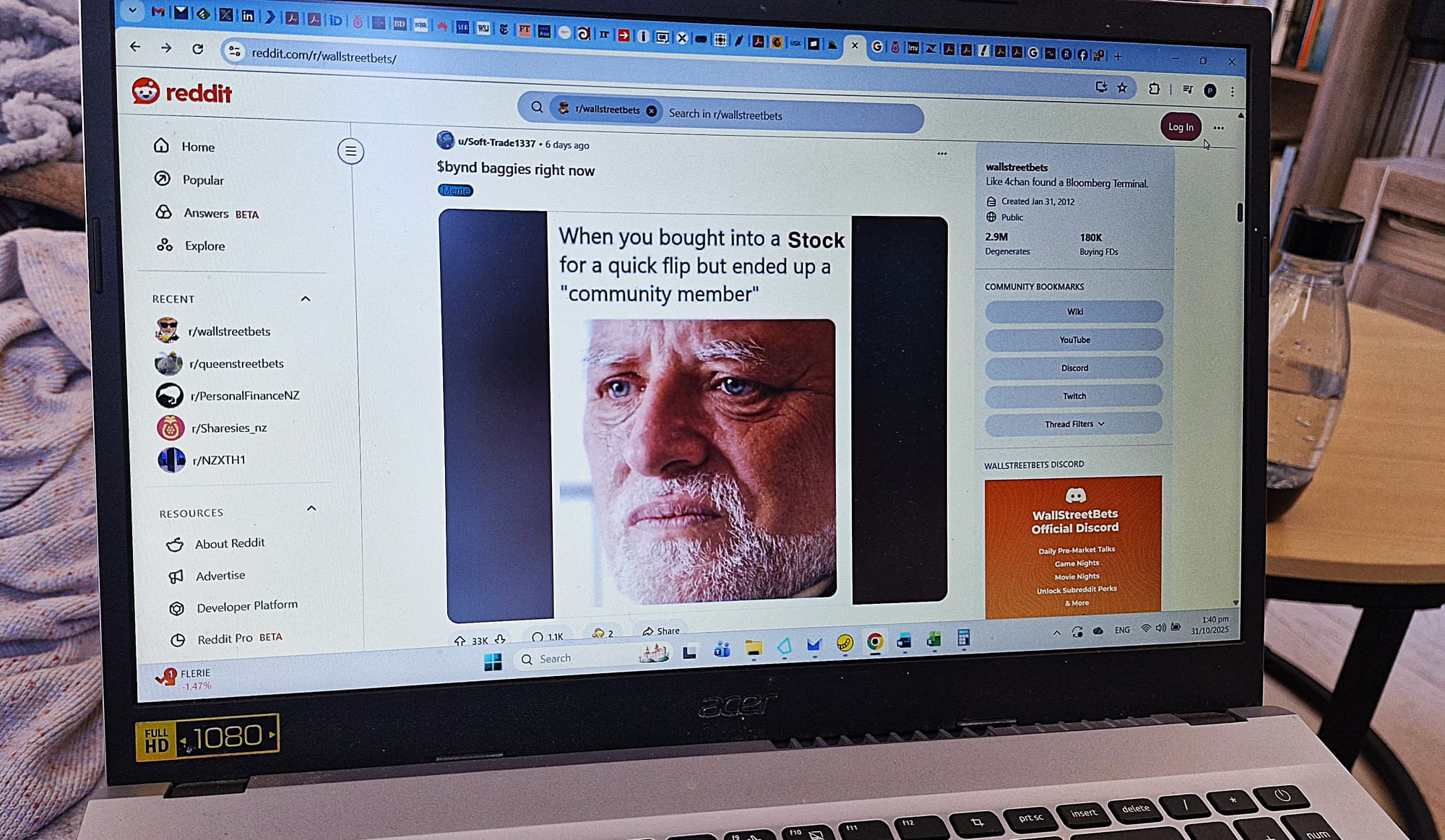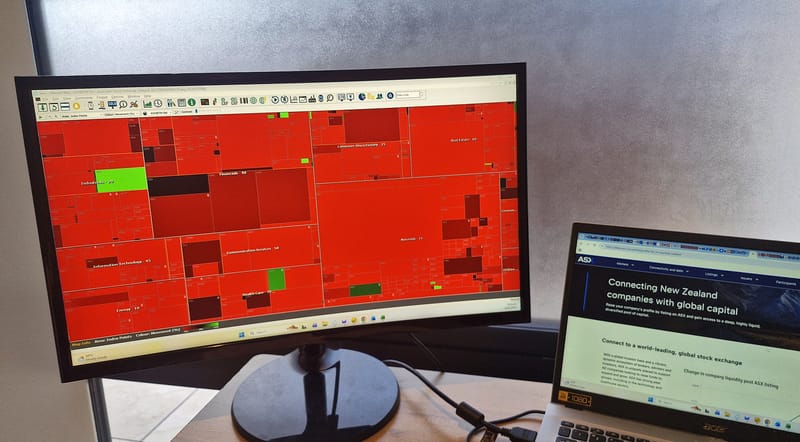PAUL MCBETH: Beyond memes
The never-ending quest for a bargain.
Paul McBeth is the editor of The Bottom Line and Curious News, and previously worked at BusinessDesk for 15 years. He’s owns shares of Wasteco Group since January 2024.
When Milford Asset Management made a mint of Diligent Board Member Services about a decade ago, it was lauded for its astute research in spending up large by sending analysts to New York to get a handle on the business.
Diligent had been out of favour since its controversial initial public offering in the tailend of 2007, when founder and chief executive Brian Henry walked six days after listing when it came out that he hadn’t disclosed his ties to the EnergyCorp dud of the 1980s in the firm’s offer document.
When the global financial crisis hit, software firms burning through cash with no sign of turning a profit weren’t the flavour of the month in the local investment community, and Diligent tumbled into penny stock status.
Of course, the software firm was on to a winner when it developed an app for its Boardbooks product – which make the ever-expanding board packs that much easier to navigate – on the iPad, the then-favoured device of the director on the go.
Milford bought in cheap and had largely sold out of its position a few years later when we learned Diligent by name didn’t mean diligent by nature when the company had to restate a screed of company accounts and share price sank.
You burden me with your questions
The fund manager’s principal, the late Brian Gaynor, put the win down to a willingness to invest the time and research into seeking out those opportunities – something active stock pickers tout as an edge over their passive counterparts who track the broader movements of a benchmark, like our own S&P/NZX 50 index.
That doesn’t always stack up. The recent S&P Dow Jones Indices’ active versus passive scorecard showed an unusually large number of stock picking managers missing out on the upswing in smaller companies in the first half of the year – a time when they’d typically shine.
The biggest of the big on the NZX50 aren’t so tied to the domestic economy and the index heavyweights such as Fisher & Paykel Healthcare, Infratil and Ebos Group have had pretty lacklustre years so far.
No surprises then that the benchmark NZX50 has gained 3.3% so far this year whereas the S&P/NZX Midcap index, which has a lot more names tied to the local economy, is up 19%.
Which isn’t to say that the hunt for a bargain is always clear-eyed.
You’d have me tell no lies
Penny stocks always come in for a bit of activity on the chance that they might come right – even your correspondent has taken one or two more speculative positions on the off chance they come off.
And while we’re yet to really experience the meme stock mania in New Zealand, we’ve got our fair share of local investors who’ve been swept up in some of those international flows.
Among the most traded companies on the Hatch platform are quantum computing favourites Rigetti Computing and IonQ, alternative meat maker Beyond Meat, advanced nuclear energy firm Oklo and the online house-flipper that’s credited with starting the next generation of meme stocks, Opendoor Technologies.
Even the Sharesies brigade take the likes of Opendoor and Rigetti into the platform’s daily top 10 US traded securities on occasion, and Beyond Meat caught some eyes when it appeared on the app’s most traded stocks after its mega-surge a week and a half ago.
In some cases, the rise of a meme stock mirrors broader themes that the professional money is tapping into, with the likes of quantum computing and energy plays built around the euphoria over artificial intelligence.
In others it’s the classic animal spirits at play, such as the revival in the likes of Beyond Meat, doughnut maker Krispy Kreme or Opendoor.
Your purple prose just gives you away
It can even be something like the controversial Sydney Sweeny jeans campaign for American Eagle Outfitters to send a stock higher as the chattering classes get in behind an idea.
Which of course leads to the professional classes to look for a way to get its slice, such as the revival of US investment house Roundhill Investments’ Meme exchange traded fund, which has almost US$30 million under management in the three weeks since its re-launch.
The fund’s offer documents are quite helpful in spelling out the risk of getting into meme stocks, pointing out that they might not kick on after the hype period and underlining in bold that their ups and downs and significant fluctuations can lead to losses.
Because like Snowball Effect’s Tom Morton recently explained in a LinkedIn post, investing in meme stocks is more for entertainment value than financial, with the occasional windfall akin to a win at Auckland’s SkyCity casino.
That’s fine for an appropriate – read small – part of an investor’s portfolio, but not the kind of thing you want to throw the life savings into.
Image from Curious News.








